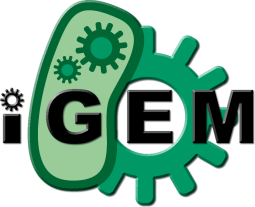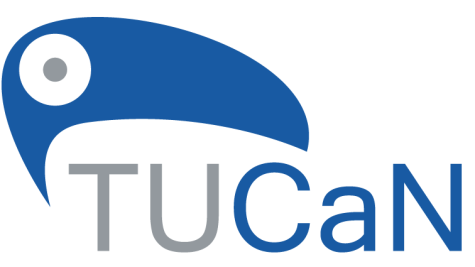Bioinformatics II
Course No: 18-kp-2120-vl
This module is for students who finished Bioinformatics I which takes place only in Winter Semesters.
It contains:
• Elementary methods of machine learning: Regression, classification, clustering (probabilistic graphical models)
• Analysis and visualization of high-dimensional data (multi-dimensional scaling, principal component analysis, embedding methods with deep neural networks, tSNE, UMAP)
• Data-driven reconstruction of molecular interaktion networks (Bayes nets, solution to Gausian graphical models, Causality analysis)
• Analysis of interaction networks (modularity, graph partitioning, spanning trees, differential networks, network motifs, STRING database, PathBLAST)
• Dynamical models of molecular interaction networks (stochastic Markov-modes, differential equations, Reaction rate equation)
• Elementary algorithms for structure determination of proteins and RNAs (Secondary structure prediction of RNAs, molecular dynamics, common simulators and force fields)
Data-driven Modeling – Machine Learning- lecture
Course No: 18-kp-2110-vl
Instructors: Prof. A. Klein, Prof. H. Köppl
Contents: The module provides an introduction to the emerging field of machine learning from an engineering perspective. Important models and learning methods are presented and exemplified through problems from information and communication technology.
- Fundamentals of probability theory and multivariate statistics
- Taxonomy of machine learning problems and models (supervised, unsupervised, generative, discriminative)
- Regression and classification: theory, methods and ICT applications
- Dimensionality reduction, clustering and big data analytics: methods and application in communications and signal processing
- Probabilistic graphical models: categories, inference and parameter estimation
- Fundamentals of Bayesian inference, Monte Carlo methods, Bayesian non-parametrics
- Fundamentals of convex optimization: Solution methods and application in communications
- Approximate algorithms for scalable Bayesian inference; application in signal processing and information theory (e.g. decoding of LDPC codes)
- Hidden Markov models (HMM): Theory, Algorithms and ICT applications (e.g. Viterbi decoding of convolutional codes)
- High-dimensional statistics (“large p small n” setting), learning dependency structure in high-dimensional data, learning causality relations from observational data.
- Sparse estimation, random projections, compressive sensing: Theory and applications in signal processing
- Deep neural networks (deep learning): Models, learning algorithms, libraries and ICT applications
Literature:
- Kevin P. Murphy: Machine Learning – A probabilistic perspective, MIT Press, 2012
- Christopher M. Bishop: Pattern recognition and Machine Learning, Springer, 2006
- Peter Bühlmann und Sara van de Geer: Statistics of high-dimensional data – Methods, theory and applications, Springer, 2011
Preconditions:
Good command of Matlab (for instance knowledge from course 18-st-2030 Matlab Grundkurs) and engineering mathematics
Data-driven Modeling – Machine Learning – exercise
Course No: 18-kp-2110-ue
The module provides an introduction to the emerging field of machine learning from an engineering perspective. Important models and learning methods are presented and exemplified through problems from information and communication technology.
Contact persons at SOS: Fengyu Cai Yannick Eich
Data-driven Modeling – Machine Learning Lab – practical training
Course No: 18-kp-2110-pr
If you are interested in our work and in this course, you are kindly invited to contact us for more information and to fix a time period for your individual practical training.
Contact persons at SOS: Fengyu Cai Yannick Eich

Computational Modeling for the IGEM Competition
Course No: 18-kp-2100-se
If you are interested in this course, you are kindly invited to contact us for more information and to fix a time period for your individual IGEM seminar.
Proseminar ETiT
Course No: 18-kp-1000-ps Proseminar ETiT
You can register for a proseminar at Self-Organizing Systems at any time.
If you are interested in doing a proseminar under supervision of SOS, please, do not hesitate to contact any member of our group and ask for details.
Contents:
Read published information (books or papers) on a choosen subject in Electrical Engineering and Information Technology. Write a summary and present it using multi media technology.
Project seminar Communication and Sensor Systems
Course No: 18-kp-1041-pj
Investigating and solving specific problems concerning communication and sensor systems (Problems concerning communications engineering, microwave technology, signal processing, sensor networks etc. are possible, topics will be defined out of the recent research topics of the involved labs), working on a a given task by one’s own, organizing and structuring of a seminar task, searching and analyzing of scientific reference publications for a given task, summarizing achieved results and conclusions by means of a written report, presenting achieved results and conclusions and defending them in an oral discussion including audience.
Research Internship – Laboratory Course
Course No: 10-02-0021-pr
All students interested in, or currently working on a thesis in the field of our research area are encouraged to register in this seminar. Please feel free to present your ideas and learn how to realize them.
Addition to project seminar Communication and Sensor Systems
Course No: 18-kp-1042-pj
All students interested in, or currently working on a thesis in the field of our research area are encouraged to register in this seminar. Please feel free to present your ideas and learn how to realize them.
Introduction to Scientific Computing with Phyton
Course No: 18-st-2070-pr
Scientific computing is introduced via six case studies. Exemplary engineering problems that are know from basic engineering courses are solved on a computer using fundamental methods from numerical mathematics. Opportunities and limitations of this approach are highlighted.
The required material on numerical mathematics is taught via preparatory scripts for each case study. During the practical exercises the methods are implemented in the current computing environment Python under the guidance of suitable teaching personnel.
The case studies cover the following numerical topics:
- Formulation and solution of systems of linear equations, sparse methods
- Integration of ordinary differential equations (ODE) and their analysis based on eigenvalues
- Mathematical optimization and automated differentiation
- Linear regression and approximation, first Machine Learning algorithms
- Discretization of simple partial differential equations (PDE)


